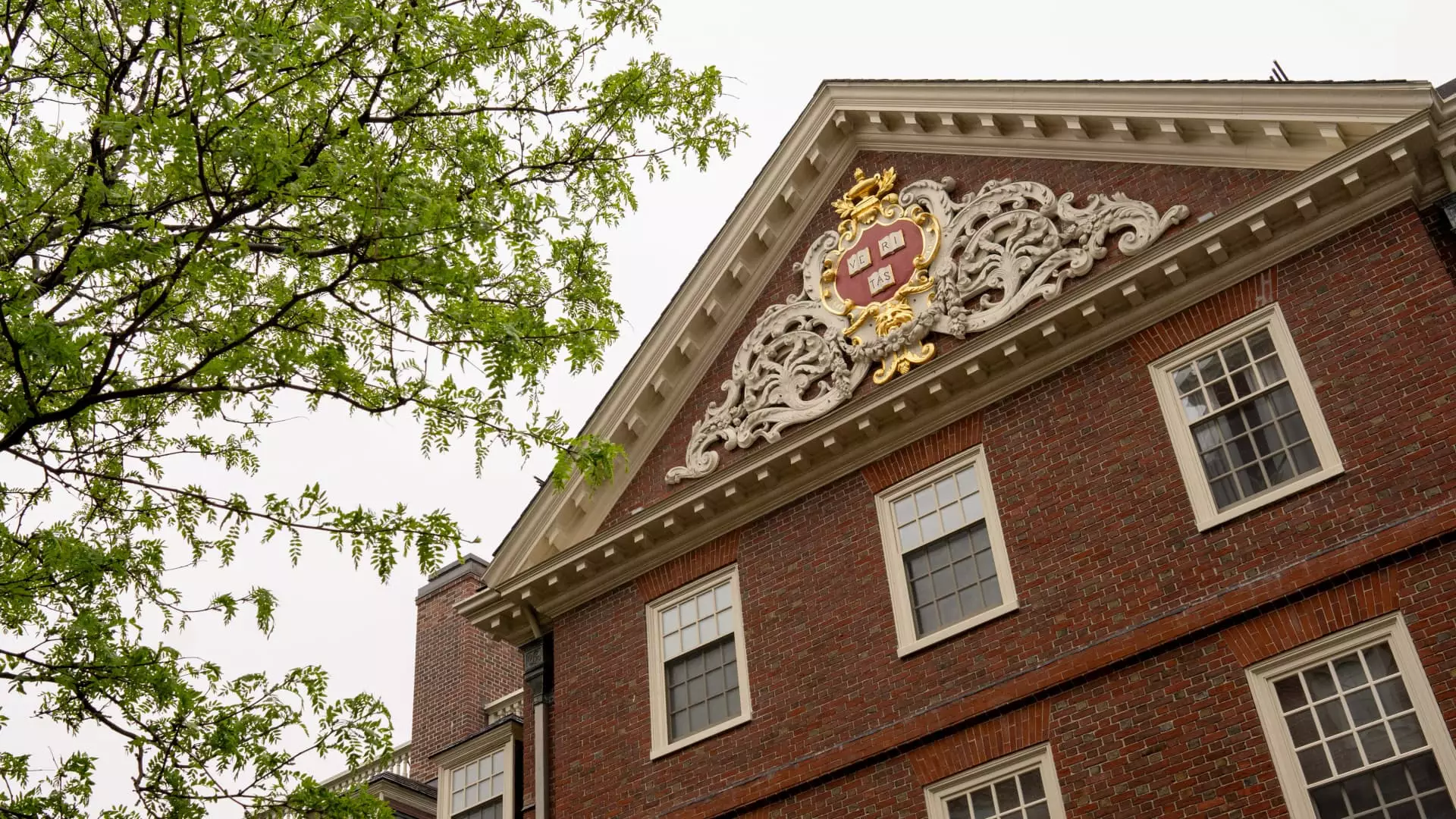In a brazen gambit that underscores the growing tensions between the Trump administration and prestigious academic institutions, President Donald Trump has indicated plans to divert $3 billion in federal grants originally designated for Harvard University toward trade schools. This alarming prospect is not merely a budgetary decision; it reflects a systematic discrediting of academia by those in power who perceive elite universities as bastions of liberal ideology. As a self-proclaimed arbiter of virtue and truth, Trump’s actions resonate with a troubling narrative that seeks to reshape educational landscapes to fit a narrow ideological mold.
Since taking office, Trump has consistently vilified Harvard and its intellectual elite as “Radical Left idiots and ‘bird brains.'” This derogatory language is not simply informal banter; it amounts to a point of contention upon which he has built a broader attack on academic freedom. By freezing $3 billion in federal grants, his administration has not only retaliated against academic institutions but has also usurped the autonomy typically exercised by independent agencies like the National Institutes of Health (NIH) in determining research funding priorities. Such a move is a stark abandonment of the principles underpinning educational and scientific integrity.
The Consequences for Scientific Research
At the heart of this controversy lies the inherent tension between public funding and institutional independence. Most of the money Trump seeks to reroute is earmarked for biomedical research—a specialization that trade schools generally do not cover. This isn’t merely a technicality; it raises existential questions about the future of scientific inquiry in the U.S. If grant allocations can be used as political tools to suppress dissenting voices, the very foundation of progress in science and technology risks erosion. The implications for health and biomedical advancement are profound, particularly as American researchers contend with issues like pandemics and chronic diseases.
Let’s not kid ourselves—this proposal is not about improving technical education or vocational training. It is an insidious attempt to intimidate and control institutions that refuse to adhere to a particular political ethos. The University’s staunch support of free speech and academic independence must not be a victim of partisan vendetta, lest we descend into an era where ideological conformity takes precedence over rigorous exploration and critical thought.
Legal Ramifications and Administrative Overreach
Harvard’s legal response to the Trump administration’s attempts to mitigate its federal funding reveals the depths of this political struggle. The university argues that these actions are unconstitutional, fundamentally undermining its rights to academic freedom—a sentiment echoed by many legal experts and liberal scholars. The temporary court order allowing Harvard to continue enrolling international students illustrates the judiciary’s role in maintaining checks against executive overreach, reminding us of the delicate balance of power that upholds American democracy. It also acts as a reminder of what’s at stake: thousands of international students regard the U.S. as an educational haven, enriching not only their lives but the academic institutions themselves.
Trump’s persecution of Harvard is indicative of a larger battle to dictate the boundaries of acceptable discourse. Rhetoric aimed at elite institutions has long been a tool in the Republican arsenal, positioned to siphon support from disaffected voter bases. However, the consequences of such tactics ripple far beyond campus life, threatening to cultivate an environment in which dissent is stifled and diverse perspectives silenced.
A Call for Academic Integrity in Troubling Times
In the face of this ongoing political drama, the broader implications for higher education in America cannot be overlooked. Any perceived attempt to subjugate institutions for political gain carries the risk of creating an echo chamber devoid of critical inquiry. As students, researchers, and educators are left to navigate this minefield of partisan maneuvering, the importance of preserving academic integrity—as well as the vital contributions of diverse voices—becomes ever more pressing.
As citizens, we must recognize this assault on academia as a reflection of broader assaults on democracy and independent thought. The challenges posed by this administration compel us to defend the sanctity of knowledge, the currency of free speech, and the irreplaceable value of a diverse array of perspectives in shaping our collective future. If we let fear dictate the trajectory of our educational institutions, we risk building a society that prioritizes conformity over enlightenment. Now, more than ever, is the time to galvanize around our shared values of academic freedom and integrity, standing firmly against the tide of political interference.


Leave a Reply